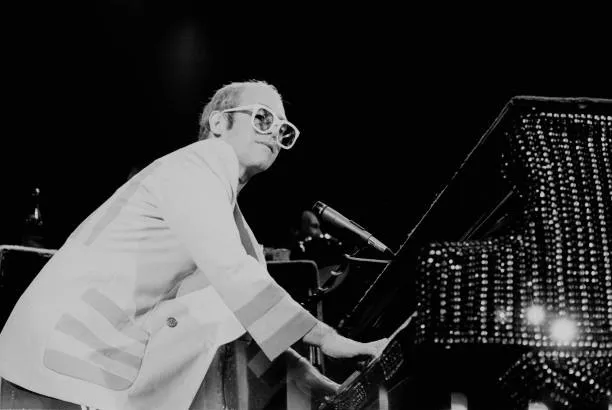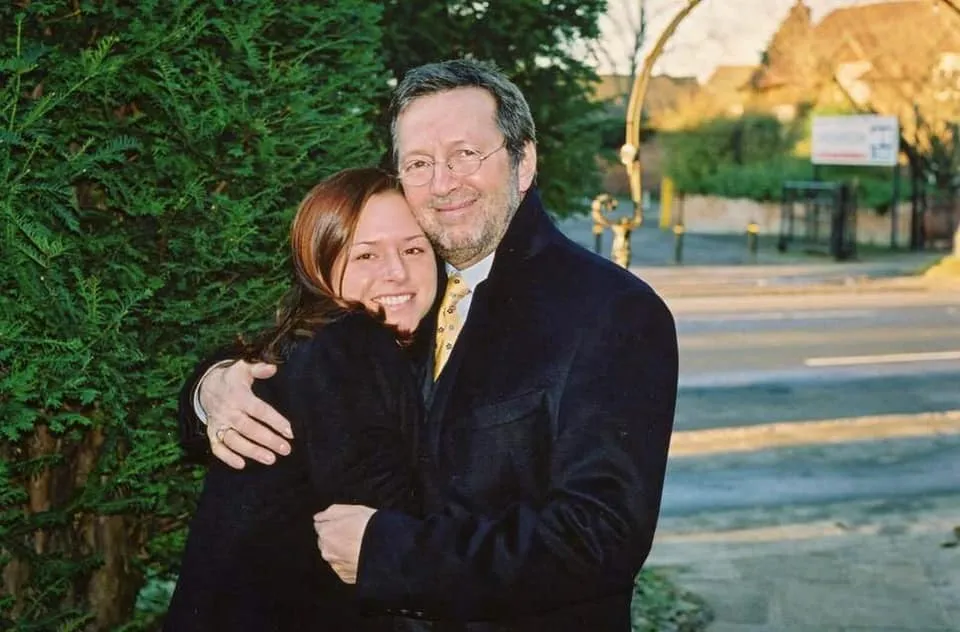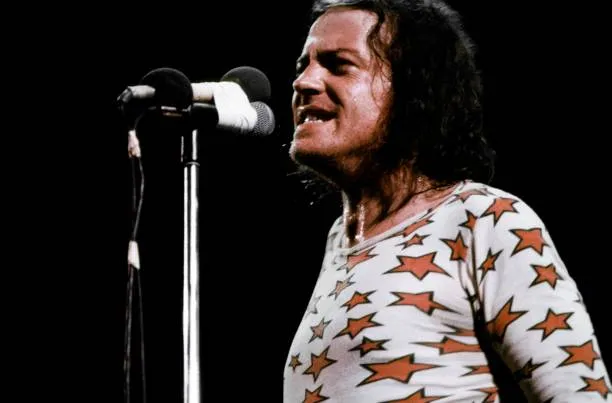Imagine a world where Eric Clapton, the legendary guitar virtuoso, became a member of The Beatles.
Such a scenario almost transpired, a tantalizing "what if" that still intrigues music fans and historians today.
The Beatles, widely regarded as the most influential band in history, could have seen a transformation unlike any other with Clapton's inclusion.
Background: The Beatles and Eric Clapton

By the mid-1960s, The Beatles had achieved unparalleled success, revolutionizing the music industry with their innovative sounds and boundary-pushing albums.
Simultaneously, Eric Clapton was making waves with his extraordinary guitar skills, securing his place as one of the most talented musicians of his generation.
Clapton's involvement with bands like The Yardbirds, John Mayall & the Bluesbreakers, and Cream had established him as a force to be reckoned with on the music scene.
Both Clapton and The Beatles were at the forefront of the British Invasion, a cultural phenomenon that saw British music acts dominate the global charts.
Their paths crossed within the tight-knit community of British rock musicians, which fostered mutual admiration and occasional collaboration.
The Beatles’ Struggles and Clapton’s Rise
In the late 1960s, The Beatles experienced internal tensions that threatened to tear the band apart.
Creative differences, personal conflicts, and the pressures of fame took a toll on their unity.
Key figures within The Beatles, particularly George Harrison, sought solace and inspiration outside the band.
It was during this turbulent period that Eric Clapton entered the picture. Harrison and Clapton had developed a close friendship, bonded by their mutual love of music and shared spiritual pursuits.
Harrison's admiration for Clapton's guitar prowess was evident, with Clapton famously contributing to the iconic track "While My Guitar Gently Weeps" on The Beatles' 1968 "White Album."
The Infamous "White Album" Sessions

The recording of "The White Album" was marked by significant stress and discord. Tensions among The Beatles ran high, contributing to a fragmented atmosphere in the studio.
George Harrison, feeling overshadowed by John Lennon and Paul McCartney, found an ally in Eric Clapton.
Harrison's invitation to Clapton to play on "While My Guitar Gently Weeps" was a pivotal moment. Clapton's fluid, emotive guitar solo infused the track with a new dimension, earning widespread acclaim.
His presence also provided a brief respite from the group's mounting frustrations, underscoring the fissures within The Beatles.
Clapton As A Potential Beatle
The idea of Clapton joining The Beatles came to the forefront during these sessions. George Harrison was particularly vocal about his desire for Clapton to become a permanent member.
Harrison recognized Clapton's exceptional talent and believed his inclusion could rejuvenate the band. This sentiment was partially echoed by John Lennon, who admired Clapton's musicianship.
However, the potential addition of Clapton to The Beatles was met with mixed reactions.
Paul McCartney, known for his assertive role in the band's direction, was less enthusiastic. He feared that bringing in an outside musician could dilute the group's chemistry and lead to further complications.
Additionally, Clapton himself was hesitant, wary of stepping into the maelstrom of the Beatles' internal dynamics.
The Roadblock: Personal and Professional Reservations

Eric Clapton's own career trajectory posed a significant roadblock to joining The Beatles. At the time, Clapton was deeply committed to his work with Cream, a band that was garnering critical and commercial success.
The prospect of leaving Cream at its peak to join The Beatles, who were embroiled in personal and creative conflicts, was fraught with uncertainty.
Moreover, Clapton's personal reservations added another layer of complexity. Despite his friendship with George Harrison and admiration for The Beatles' work, Clapton recognized the potential challenges of integrating into a band with such a well-established dynamic.
The Beatles, after all, were a tightly-knit unit with a specific modus operandi, and the addition of an external figure could disrupt that balance.
What If: A Hypothetical Collaboration
While Eric Clapton ultimately did not join The Beatles, it is worth contemplating the hypothetical impact of such a collaboration.
Clapton's virtuosity could have introduced a new sonic dimension to The Beatles' music, merging his blues-influenced guitar style with their eclectic sound.
Collaborative compositions between Clapton, Lennon, McCartney, and Harrison might have yielded unique and innovative tracks.
The potential for Clapton's involvement in landmark Beatles projects, such as "Abbey Road" and "Let It Be," is a tantalizing prospect.
Imagine Clapton contributing his signature guitar work to tracks like "Here Comes the Sun," "Something," or "Come Together."
Such a partnership could have reinvigorated the band, possibly extending their lifespan and delaying their eventual breakup.
Post-Beatles Collaborations

Despite not joining The Beatles, Clapton's association with the band members continued post-breakup.
His enduring friendship with George Harrison led to several notable collaborations, including the formation of the supergroup The Traveling Wilburys.
Clapton's involvement in the "Concert for Bangladesh," a pioneering benefit concert organized by Harrison, showcased their continued musical camaraderie.
Additionally, Clapton's influence on the members of The Beatles extended beyond Harrison.
Paul McCartney and Ringo Starr both expressed admiration for Clapton's work, leading to occasional collaborations and performances together.
Clapton's contributions to the solo efforts of these artists further cemented his role in the broader Beatles legacy.
Clapton’s Solo Success
Eric Clapton's solo career flourished independently of The Beatles, solidifying his status as one of rock's greatest guitarists.
Albums like "Layla and Other Assorted Love Songs" with Derek and the Dominos and his self-titled solo debut showcased his exceptional talent and songwriting prowess.
Clapton's evolution as an artist continued to shape the music landscape, earning him countless accolades and a devoted global fanbase.
The Legacy of a Near-Miss
The near-miss of Eric Clapton almost joining The Beatles remains an intriguing footnote in music history.
While the actual inclusion never materialized, the possibility highlights the interconnectedness of rock's luminaries during a transformative era.
It also underscores the fragility of creative collaborations, where even the mightiest bands encounter crossroads that could have led in unpredictable directions.
Both Clapton and The Beatles carved out indelible legacies that continue to captivate and inspire.
Clapton’s technical brilliance and emotive playing, coupled with The Beatles' groundbreaking innovation, have left an enduring mark on the world of music.
Imagining their paths fully converging provides a sense of wonder, an appreciation for the remarkable trajectory of each artist, and a respect for the music they gifted the world individually.
The Enduring What-If
The story of Eric Clapton almost joining The Beatles serves as a captivating "what if" in rock history.
Despite the ultimate decision to remain on separate paths, the mutual respect and admiration between Clapton and The Beatles endures as a testament to their shared devotion to music.
This unwritten chapter adds another layer of depth to the already rich narrative of one of the most celebrated periods in music history.
While we can only imagine the potential synergy and creative masterpieces that might have emerged from Clapton's integration into The Beatles, we remain grateful for the extraordinary music that each has produced.
This near-collaboration stands as a fascinating glimpse into the crossroads of music’s greatest legends, a reminder of the incredible possibilities that lie within the art of collaboration.



